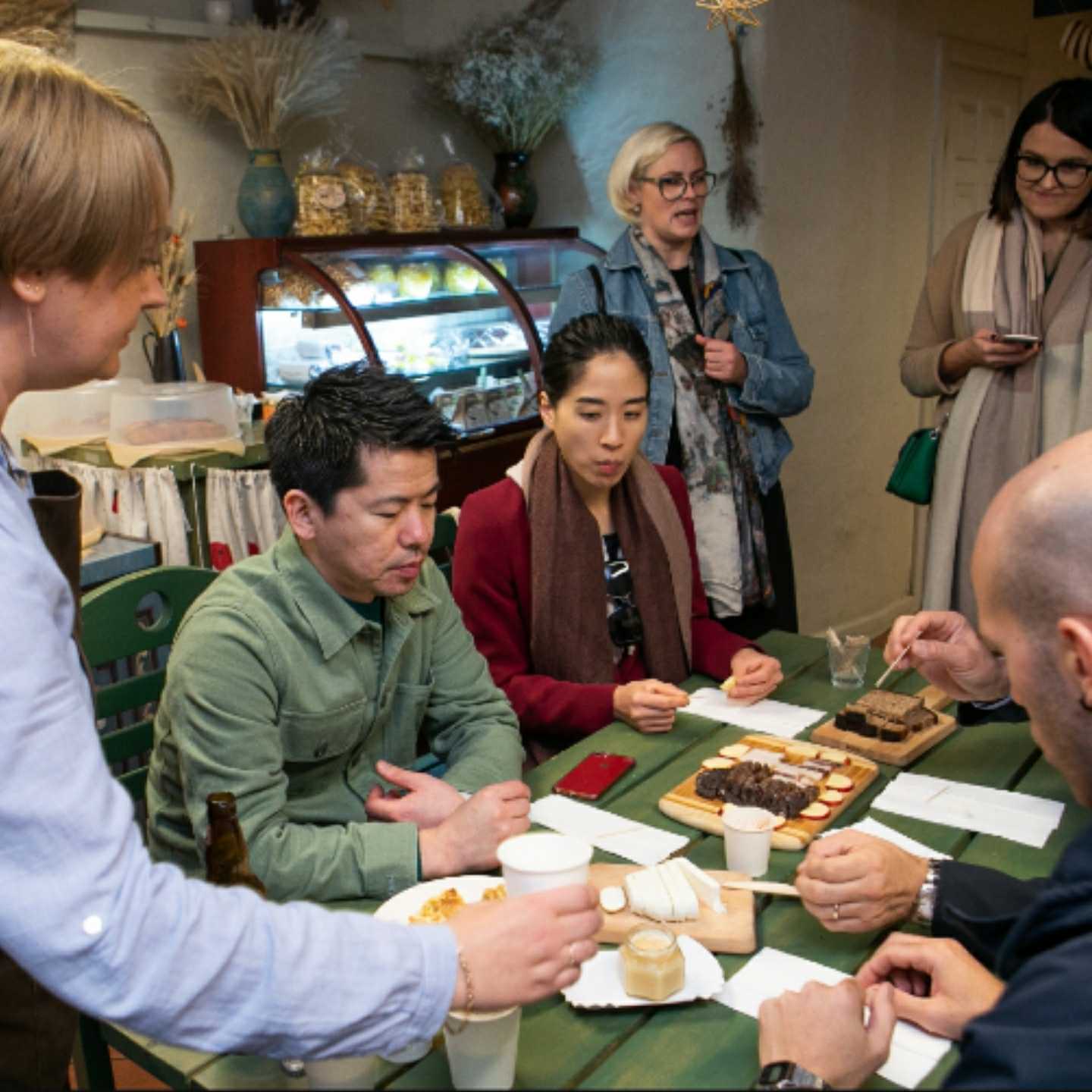Trend of Going Back to the Roots Praised by Michelin-Starred Chefs
Michelin-starred chefs from Italy were impressed by fine dining and food traditions they have discovered in Vilnius – the capital of Lithuania. The chefs pointed out reliance on roots and authenticity as the main strength of Lithuanian cuisine. They saw this as a trend that other countries are likely to follow.
The restaurants, food markets and delicacy shops of Vilnius attracted considerable attention of Michelin-starred chefs Andrea Aprea and Anthony Genovese, who visited the Lithuanian capital to attend the Lithuanian Gastronomy Forum. Both chefs agreed that a combination of authentic elements with modern cuisine sets Vilnius food tradition as an example to follow.
“Authenticity is important for the new generation of chefs we see coming at the moment. It is quite easy to get caught up in what the rest of the world is doing without figuring out who exactly you are as a chef and learning about your own heritage. Once you have this base understanding of yourself and your roots, your food will continue to evolve and thrive,” said Chef Genovese from the restaurant Il Pagliaccio, **Michelin Guide 2019.
According to Chef Aprea, when people make their traditional dishes they save and share memories of authentic food. People then learn from each other by making or tasting food of other cultures.
“I don’t have any memory of Lithuanian food, I don‘t know what is authentic Lithuanian cuisine, but the food itself and chefs who made it were telling stories. They combine the contemporary approach towards food with local traditional food elements. I think that coming back to the roots, saving and sharing memory is the way everybody should and will follow,” explained Chef Aprea from the restaurant VUN, ** Michelin Guide 2019.
During his food exploration trip, Chef Aprea was introduced to food served in Lithuania during the Middle Ages. He tried traditional cottage cheese, smoked pork fat, kvass and spit cake.
“I’d definitely recommend Vilnius as a gastro tourism place. It’s interesting to discover both the modern cuisine with traditional elements and an authentic food experience tasting the food that Lithuanians served on the table in the Middle Ages. Not only I’d recommend Vilnius to my friends or other chefs but I also plan coming back here again myself,” reflected Chef Aprea.
Vilnius’ restaurants focus on seasonal cuisine, improvisation, and unique culinary experiences. And though they differ in flavours, concepts and traditions, they’re all contributing to the city’s budding food scene, which takes guests on delicious flavour filled adventures.
Most of the top-grade restaurants in Vilnius have some traditional Lithuanian elements in their menus. For example, restaurants Nineteen 18 and Sweet Root both base their cuisine specifically on a modern interpretation of Lithuanian culinary tradition. These restaurants were listed second and third, respectively, on the 2019 Top 30 Baltic restaurants list and given the Global Master Level by the White Guide Nordic. The best Lithuanian restaurant (according to a local rating) Džiaugsmas also serves creative reinterpretation of local food.
The menu of such restaurants features original interpretations of such Lithuanian everyday dishes as carp, schnitzel, beetroots and potatoes. Mushrooms – the must-have of the ordinary Lithuanian kitchen get into unexpected combinations as in dried boletus ice cream with hazelnut biscuit and fourteen months oak-aged apple vinegar served in Džiaugsmas. The fine-dining restaurants use local supplies of Lithuanian farmers or even develop their own farms.
Chef Aprea thinks that the popularity of local produce and food markets also adds to the high quality of food in Vilnius restaurants.
“When I visit foreign countries I first try to find out where people from that country are buying food. It helps me in understanding their approach towards food. It‘s important because food is our gasoline. Finding a nice and lively food market in a city or country is an important sign for me,” he said.
The trends and lessons of contemporary Lithuanian cuisine were further discussed at the second Lithuanian Gastronomy Forum which this year focused on multiculturalism as the foundation of the new Lithuanian gastronomy. Throughout the history Lithuanian cuisine was influenced by French, Italian and German gastronomic traditions as well as Jewish, tartar and other oriental cultures that reached Lithuania through its ethnic minorities. This mix of cultures and the cuisine that grew out of it were the main topics of all presentations and discussions at the forum.
ABOUT GO VILNIUS
Go Vilnius is the official tourism and business development agency of the City of Vilnius. The agency provides visitors, investors, relocating talent, entrepreneurs and businesses with all the essential information they need to know about the Lithuanian capital. Go Vilnius offers information on everything from real estate to leisure activities in Vilnius, simplifying the process of travelling, relocating to, or investing in Vilnius.
*Photo Credit: Irmantas Gelūnas






